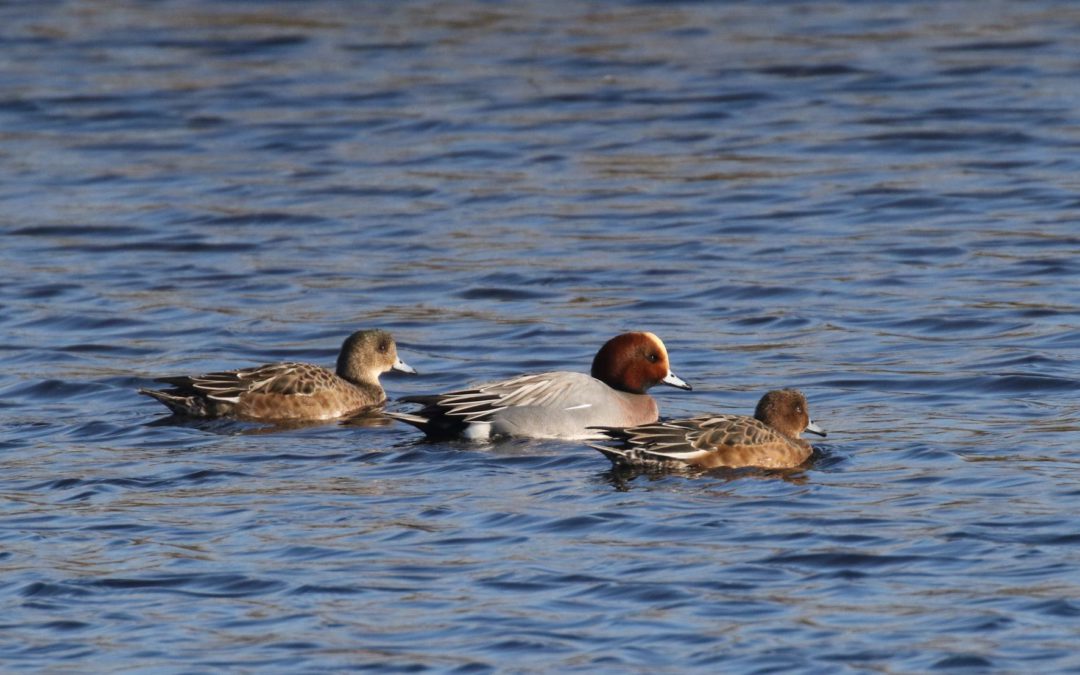Linda and Anthony Biddle will take us on our New Years walk on the Hambleton Peninsular.
Winter walk January 6th 2024
Our usual post-Christmas walk was planned soon after the new year to blow away the cobwebs and maybe walk off some of the Christmas food! Ten of us gathered at the fisherman’s car park at the bottom of the hill before Hambleton village. It was a chilly, grey morning but the early arrivers were lucky enough to see a pair of goldeneye in the water behind the gate. The male, foreseeing the spring, gave a display, throwing back his head almost onto his back, before they disappeared out of view.
We walked west down the road and crossed onto the perimeter track, going east along the waterside, seeing mallard, widgeon, and tufted duck in small flotillas. As we approached the old Hambleton Hall, we saw a large group of duck, which, after some discussion, agreed that they were all goldeneye. There were 12 males all looking splendid in their dazzling white and black plumage, accompanied by 14 less strikingly dressed females, dark, with reddish brown heads, the perfect foil for their male counterparts.
Continuing past the hall and towards the wood, we were able to watch several great crested grebes, also looking smart in their breeding plumage. In the wood there was little activity from small birds, only a robin gave a brief snatch of song, and a couple of tits flittered about. Two of the party had to leave early, but phoned after a few minutes to tell us there was an otter in the bay just outside the wood, so we retraced our steps towards the Hall, and sure enough, immediately outside the wood an otter was cavorting in the water just off the shore. He (or she) would dive down into the water then come up and float comfortably for a few moments before diving again, or “porpoising” across the surface of the water! We concluded that there were probably lots of the invasive quagga mussels on the shallow bottom of the water, and the otter was busily feasting on them. Quagga mussels first appeared in the UK in 2014 and have very rapidly spread so that when the water level in Rutland water is low, the shore is carpeted by them. They outcompete our native freshwater mussels so are considered a pest from a conservation point of view and they are not loved by the water companies, as they clog up pipelines and machinery, but at least they provide a ready source of food for the otters!
After spending some time watching the otter we realised that the morning had flown by and so we wandered back to our cars and home for a warming lunch!
Linda Biddle.
